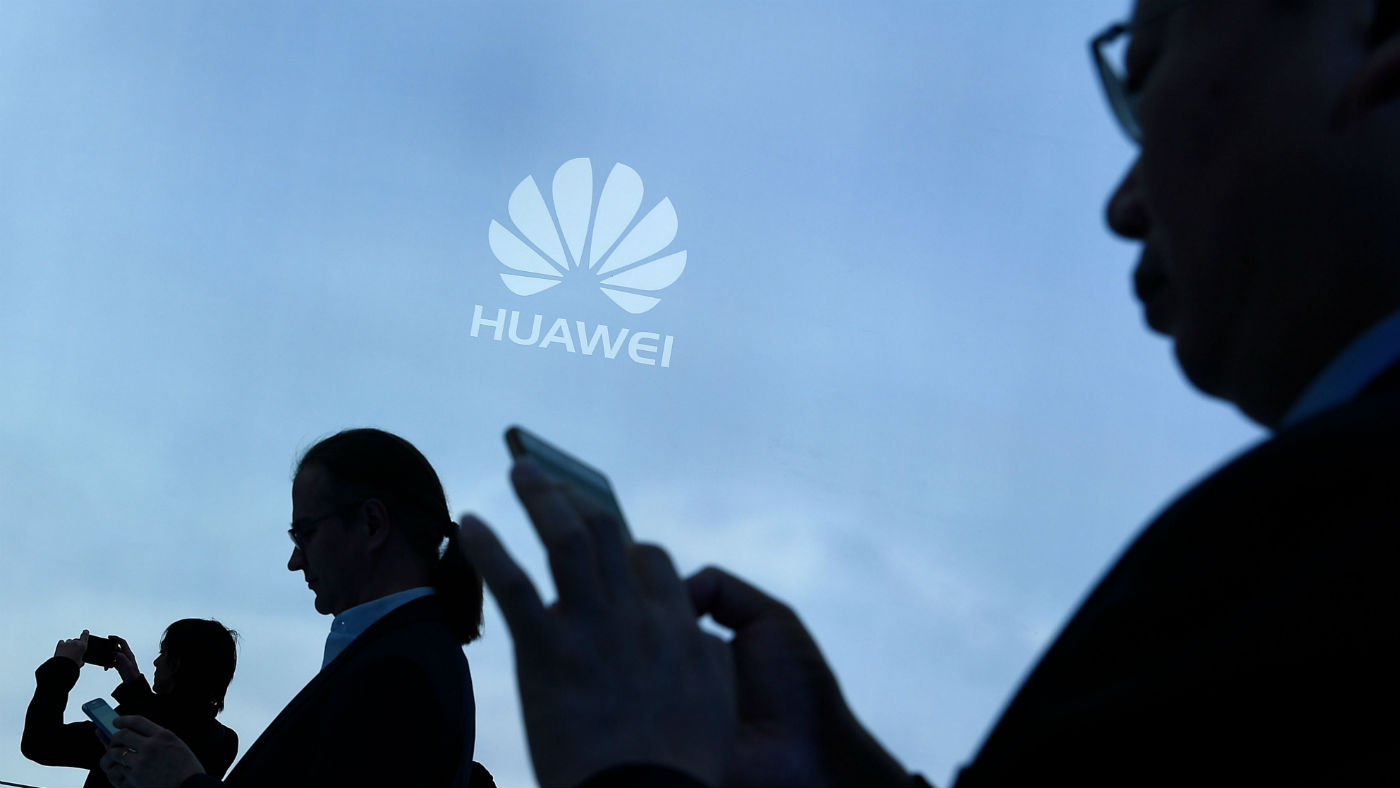US curbs on Huawei starting to bite
Chinese telecoms giant says international sales of handsets dropped by 40% last month as backlash against firm intensifies

A free daily email with the biggest news stories of the day – and the best features from TheWeek.com
You are now subscribed
Your newsletter sign-up was successful
International sales of Huawei mobile phone handsets have dropped by 40% in the past month, as the US-led backlash against the Chinese telecoms giant intensifies.
Last month, the US put Huawei on a list of companies that American firms cannot trade with unless they have a licence. “The move marked an escalation in efforts by Washington to block Huawei,” says the BBC.
“The embattled Chinese tech firm has since become a flashpoint in the US-China trade war,” says CNN Business.
The Week
Escape your echo chamber. Get the facts behind the news, plus analysis from multiple perspectives.

Sign up for The Week's Free Newsletters
From our morning news briefing to a weekly Good News Newsletter, get the best of The Week delivered directly to your inbox.
From our morning news briefing to a weekly Good News Newsletter, get the best of The Week delivered directly to your inbox.
In response to its effective blacklisting by the Trump administration over concerns about security, Huawei’s founder Ren Zhengfei said the company would slash production by $30bn (£23.9bn).
Despite being locked out of the US market for nearly a decade because of these concerns, Huawei has grown into the world’s largest telecommunications equipment maker and the number two smartphone brand.
While Zhengfei has previously downplayed the impact of US restrictions, he said he had not expected that US determination to “crack” the company would be “so strong and so pervasive”.
The founder’s “downbeat assessment” comes “as a surprise after weeks of defiant comments from company executives who maintained Huawei was technologically self-sufficient”, Reuters says.
A free daily email with the biggest news stories of the day – and the best features from TheWeek.com
The company has also been hit by a knock-on effect which has led other tech companies around the world to cut their associations with Huawei.
Google has barred Huawei from some updates to its Android operating system, while Japan’s Softbank and UK-based chip designer ARM are among a growing list of companies to suspend their business relationship.
Washington fears that Beijing could use Huawei equipment to spy on other nations. There is specific concern that the brand’s next-generation 5G mobile networks could be used by the Chinese government for surveillance.
In April, then-UK defence minister Gavin Williamson was sensationally sacked by Theresa May after allegedly leaking confidential documents which showed the UK was in talks with Huawei to roll-out its own 5G network.
The issue once again raised its head during Donald Trump’s recent state visit to the UK, when he hinted the US could limit its intelligence sharing with the UK if it agreed a deal with Huawei.
US tech expert Nicolas Negroponte, founder of the Massachusetts Institute of Technology Media Lab, said the US ban was a mistake.
“Our president has already said publicly that he would reconsider Huawei if we can make a trade deal. So clearly that is not about national security,” he told Reuters. “It is about something else.”
-
 5 calamitous cartoons about the Washington Post layoffs
5 calamitous cartoons about the Washington Post layoffsCartoons Artists take on a new chapter in journalism, democracy in darkness, and more
-
 Political cartoons for February 14
Political cartoons for February 14Cartoons Saturday's political cartoons include a Valentine's grift, Hillary on the hook, and more
-
 Tourangelle-style pork with prunes recipe
Tourangelle-style pork with prunes recipeThe Week Recommends This traditional, rustic dish is a French classic
-
 Epstein files topple law CEO, roil UK government
Epstein files topple law CEO, roil UK governmentSpeed Read Peter Mandelson, Britain’s former ambassador to the US, is caught up in the scandal
-
 Iran and US prepare to meet after skirmishes
Iran and US prepare to meet after skirmishesSpeed Read The incident comes amid heightened tensions in the Middle East
-
 EU and India clinch trade pact amid US tariff war
EU and India clinch trade pact amid US tariff warSpeed Read The agreement will slash tariffs on most goods over the next decade
-
 Israel retrieves final hostage’s body from Gaza
Israel retrieves final hostage’s body from GazaSpeed Read The 24-year-old police officer was killed during the initial Hamas attack
-
 China’s Xi targets top general in growing purge
China’s Xi targets top general in growing purgeSpeed Read Zhang Youxia is being investigated over ‘grave violations’ of the law
-
 Panama and Canada are negotiating over a crucial copper mine
Panama and Canada are negotiating over a crucial copper mineIn the Spotlight Panama is set to make a final decision on the mine this summer
-
 Why Greenland’s natural resources are nearly impossible to mine
Why Greenland’s natural resources are nearly impossible to mineThe Explainer The country’s natural landscape makes the task extremely difficult
-
 Iran cuts internet as protests escalate
Iran cuts internet as protests escalateSpeed Reada Government buildings across the country have been set on fire